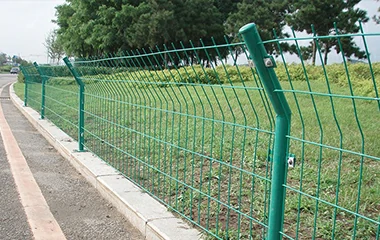 TEL:
+86-13102802206
TEL:
+86-13102802206
 Email:
fencenetting@china.com
Email:
fencenetting@china.com
 Language
Language
 TEL:
+86-13102802206
TEL:
+86-13102802206
 Email:
fencenetting@china.com
Email:
fencenetting@china.com
 Language
Language


Understanding Poultry Fence Netting A Guide for Farmers and Poultry Enthusiasts
Poultry farming is both an art and a science, requiring careful planning and attention to detail to ensure the health and productivity of the birds. One key aspect of successful poultry management is the implementation of effective fencing systems. Poultry fence netting serves as an essential tool in safeguarding your flock from predators, preventing them from wandering off, and managing their environment. This article will explore the various types of poultry netting available, their benefits, and how to effectively implement them on your farm.
1. What is Poultry Fence Netting?
Poultry fence netting is specialized fencing material designed to enclose chickens, ducks, and other poultry species. Typically made from materials such as plastic, wire, or metal, poultry netting comes in various forms, including mesh rolls, welded wire panels, and electric fencing. The choice of materials and design usually depends on the specific needs of the poultry operation and the type of predators one might encounter.
2. Types of Poultry Netting
- Plastic Netting Lightweight and easy to handle, plastic netting is often ideal for smaller poultry operations or backyard farms. It is typically UV resistant and not prone to rust, making it suitable for outdoor use. However, it may not provide sufficient security against more determined predators like coyotes or raccoons.
- Wire Fencing This type is more robust and often comes as either welded wire or hexagonal wire. While welded wire panels provide strength and durability, hexagonal wire is popular for it’s flexibility and ease of installation. Both types offer good security but can require more installation time and resources.
- Electric Fencing A newer and more innovative solution, electric poultry fences deliver a mild shock to animals that attempt to breach the perimeter. This method is highly effective in deterring predators while ensuring the safety of the poultry within. Electric fencing can be more costly upfront, but its effectiveness can justify the investment.
3. Benefits of Using Poultry Fence Netting
- Predator Protection The primary advantage of fencing is to safeguard your birds from natural predators such as foxes, hawks, and raccoons. A well-installed netting system provides a barrier that is difficult for these animals to penetrate.
- Controlled Environment Poultry netting helps maintain a contained environment for your flock, protecting them from external dangers and allowing you to control their routine, feeding, and breeding practices more effectively.

- Health Management By preventing your birds from defecating in their living areas, effective netting can reduce the chances of disease transmission and enhance the overall health and productivity of your flock.
- Versatility Poultry fence netting can be used in various configurations and designs, depending on flock size, type, and environmental conditions. Whether you have a small backyard setup or a large-scale farming operation, there are suitable options available.
4. Installation Tips
Proper installation is crucial to ensure the effectiveness of poultry netting
. Here are some tips to follow- Choose the Right Location Select a level area that provides ample space for your birds to roam and forage. Avoid low-lying spots where water may accumulate.
- Secure the Base Dig a trench or use stakes to secure the bottom of the netting into the ground. This prevents predators from burrowing underneath.
- Install Gates Make sure to include a secure gate for easy access to the area, ensuring it can be closed tightly to maintain security.
- Regular Maintenance Frequently check for any signs of wear or damage, and repair or replace the netting as necessary to maintain a secure environment.
Conclusion
Investing in quality poultry fence netting is a vital step in ensuring the safety and well-being of your poultry. Whether you're a small-scale farmer or a dedicated poultry enthusiast, understanding the different types of netting and how to effectively use them can make a significant difference in your operation. With the right approach to fencing, you will not only protect your flock but also enhance their overall productivity and health for years to come.